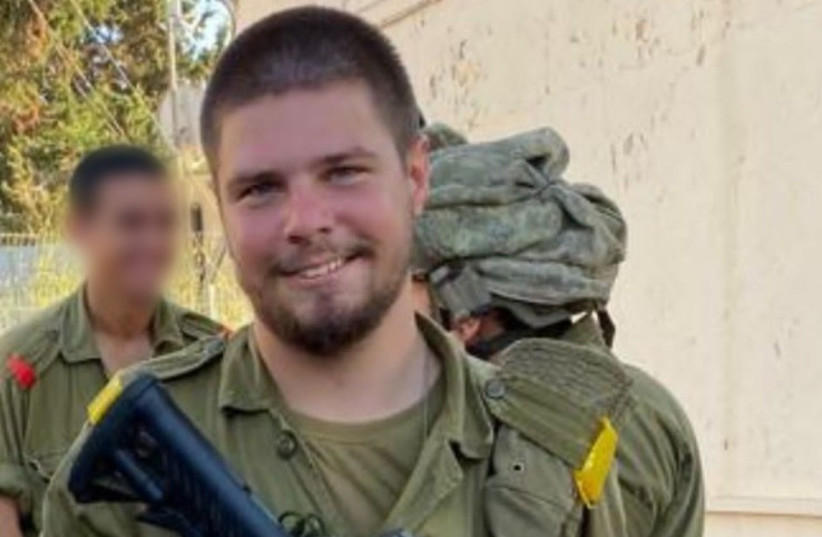There’s a recurring sentiment within Jewish circles: lamenting how younger generations – first millennials, and now Gen Z – are perceived as being detached, superficial, or lacking in idealism.
However, the tragic death of Sgt. Maxim Mulchanov, a lone soldier from Ukraine, during Thursday’s terror attack at the Maccabim checkpoint, challenges this notion.
His story reveals that many in these younger generations possess profound depths and values, if only we would take the moment to recognize them.
Mulchanov’s parents, residents of the besieged city of Kharkiv, poignantly described him as “a very honest and open person, always eager to help.” Beyond this description, Mulchanov’s actions spoke even louder.
“Just last year, he assisted a child in Germany who required a bone marrow transplant,” his father shared, with evident emotion. “He was not only proud to serve in the army, but took immense pride in his active combat role on the front lines.”

Given the tumultuous events of the past year and a half, the war in Ukraine must have been a harrowing experience for both Mulchanov and his family. Simultaneously, he stood on the front lines of a Middle Eastern nation that faces countless adversaries, primarily because of its Jewish identity.
It was the Law of Return that allowed Mulchanov and his brother to make aliyah independently and join the IDF. This law permits any Jew, or even a grandchild of a Jew, to obtain Israeli citizenship. There is debate about the extent to which this law should be applied, especially concerning immigrants from former Soviet nations who may not meet halachic definitions of Jewish identity.
A very painful aliyah process
Although the current government has not formally endorsed restrictions, its actions imply a different stance.
Numerous Russian Jews, or those with Jewish ancestry, keen to make aliyah, find the process painfully prolonged.
The understaffed Nativ, an agency under the Prime Minister’s Office responsible for processing aliyah from former Soviet Union countries, often takes up to nine months to schedule an initial meeting with its consuls.
The government’s support structures for potential Ukrainian and Russian immigrants are also dwindling. Further complications arise when Russians, arriving in Israel on tourist visas awaiting aliyah, can’t work or access their Russian funds due to Western sanctions.
Yet, many immigrants, like Mulchanov, commit years to defending the Jewish state, leaving families behind. While many might not fit the halachic definition of Jewish, they are undeniably zera Yisrael (descendants of Jews).
Jews from the former Soviet Union experienced forced estrangement from their religious practices and traditions. We owe it to them to aid in their spiritual and cultural return.
That said, some of the criticism towards the Law of Return should be debated and discussed. If there are loopholes, we must consider making minor changes, in a sensitive and cautious way. Yet we cannot close the door in the faces of our brothers, sisters, or distant cousins, if you wish.
Mulchanov’s ultimate sacrifice underscores the privilege of Jewish lineage, or the heritage of Jewish ancestry. He stood as a symbol of the right to exist in a nation where Jews are the majority and can freely express their faith without the shadows of antisemitism or alienation.
The world anticipates his burial in the coming week, once his parents can escape the ravages of war in Ukraine. In a poignant gesture, Israeli officials are making every effort to ensure his parents are safely brought to Israel, so they can be present to bid their brave son a final farewell in an IDF cemetery.
Reflecting on Mulchanov’s legacy should propel us into action: advocate for the preservation of the Law of Return, ensuring that future generations find their place in Israel; engage in meaningful dialogue about our shared Jewish identity and contribute to organizations that support lone soldiers and new immigrants.
In remembering Mulchanov, let’s unite in purpose, turning our shared grief into collective action for a brighter, more inclusive Israel.
